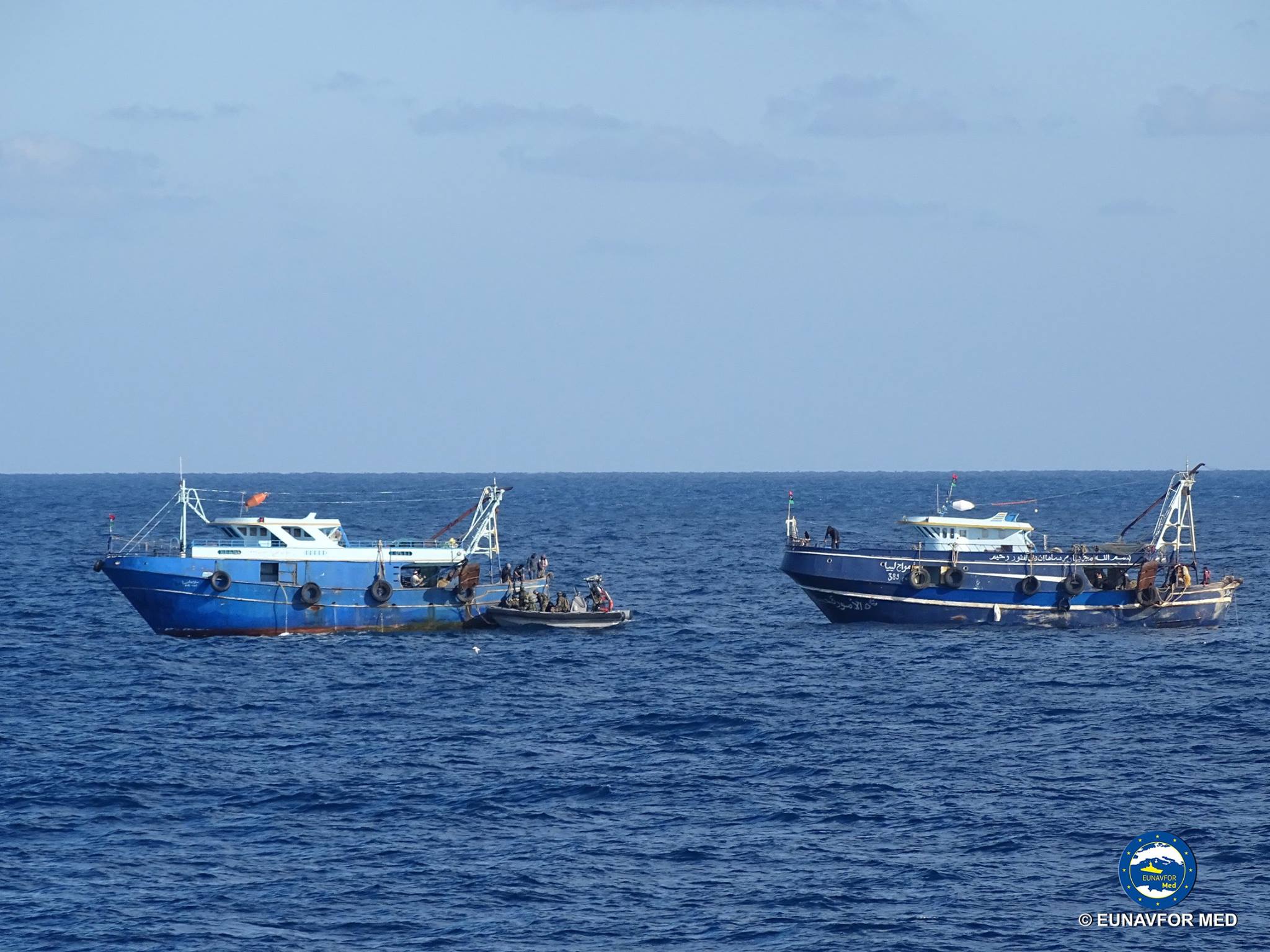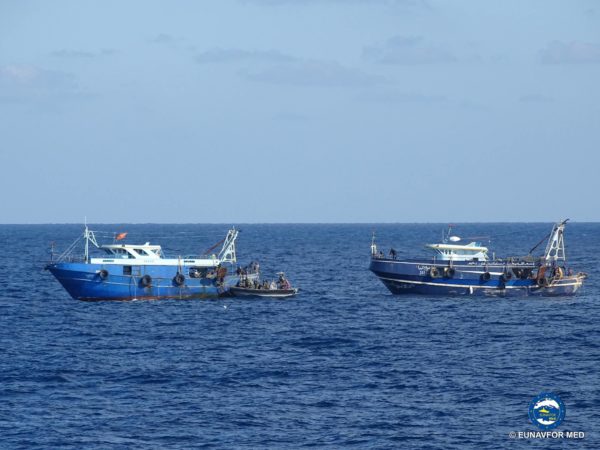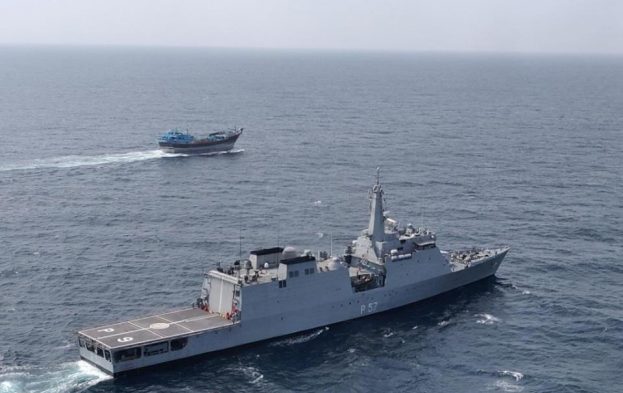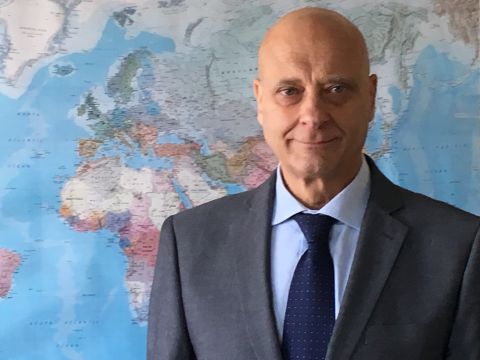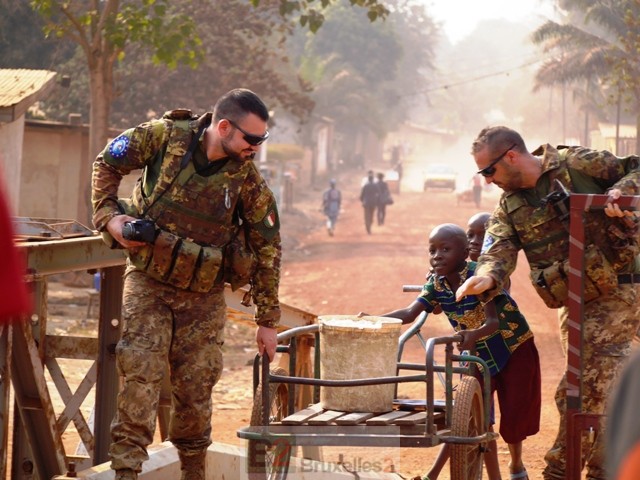The Sophia operation is rowing. Why ?
(B2) More than 18 months after its launch, we can begin to draw up an initial assessment of the EUNAVFOR Med / Sophia operation in the Mediterranean. He's not great. Might as well say it clearly. Libyan human trafficking networks are not eradicated or even really disrupted.
Admittedly, more than 220 rescue operations at sea have been carried out since the start of the operation, making it possible to come to the aid of just over 32.000 migrants. But that was not the primary objective of the operation, just a consequence: rescue at sea is a general obligation.
Admittedly, the systematic destruction of the ships employed by the traffickers (372 ships since the start of the operation) takes away some of their traffic capacity. But it is immediately replaced or the traffickers diversify their methods. Better still, to the traditional zone, coming from Libya, from the Zuweira - Misrata zone, an Egyptian route has been added since last fall. Egyptian smugglers now provide about 10% of the traffic arriving in Italy (about 10.000 arrivals out of the 140.000 recorded until the end of October).
Admittedly, more than 100 individuals suspected of trafficking have been handed over to the Italian authorities, who are responsible for judging them. But, in general, it is above all a question of performers or supervisors, or even simple migrants who have been responsible for escorting their ship.
The goal of the " deterioration of the (maritime) capacity of traffickers » is thus achieved only « at 30% », according to the latest report which covers most of the 2016 period. Suffice to say that the objective is far from being achieved, and even that there is a partial failure. " When we give this figure, it's because we haven't reached a third of our goal... it's low confirms an operations specialist...
Admittedly, the operation began, in September 2016, to control the area at sea, to ensure compliance with the arms embargo. But, in several months of control, only one suspect boat could be controlled, according to our sources. It's not that there is no traffic. But it is necessary to ensure the feedback of information. And only two ships to control the area, it's a bit stingy...
As for the training of the coastguards, it still appears to be in its infancy. A first training of about 80 coastguards has just been carried out on a Dutch ship and an Italian ship. The question now is to continue this training. And... there is no money!
In summary, as they say in the European corridors, the operation 'does not deliver' (does not lead to concrete results).
Challenging Operation Sophia (EUNAVFOR Med) or saying “there is nothing to do” is however very easy. But the sailors engaged in this operation cannot really do much more. There is no Libyan government. Libya has remained, for five years, a no man's land ungovernable. It is with the Franco-British intervention, one of the most beautiful failures of military interventions of recent times (1).
Ships still cannot enter Libyan territorial waters to go and police... Partly because the authorities do not want it, and there is a significant danger. But, in part, also because the international community does not want it. Here again, the Libyan experience of 2011 left indelible traces (2).
As for the financing of training, the operation commander is obliged to pass the begging bowl among the Member States. And few have really responded positively. A project has indeed been presented by the Commission to set up a small equipment and training fund (CBSD, formerly "Train & Equip"), which could be used for this purpose. It remains stuck in a legislative limbo between the Council (the Member States and the European Parliament).
As a result, a review of the objectives is underway. And everyone perceives, internally or in military circles, that it is necessary to move on, to strengthen the operation, to achieve more results, and more quickly, because betting on a relay by the new Libyan state seems very fragile. This is the whole objective of certain measures that the High Representative and the European Commission will present in Malta, during the informal summit at 27, at the beginning of February. This was also the whole point of the "line of protection" wanted by Malta.
The European operation at sea does not have a large number of personnel, in terms of personnel or ships, to carry out all these objectives. The Member States, each for excellent reasons, are reluctant to invest more resources. Everyone will have to move their buttocks a little..., put their hand in their pocket and put in agreement what is said out loud (we must act) with actions (3).
(Nicolas Gros-Verheyde)
Read also:
- What is the outcome of Operation Sophia (EUNAVFOR Med) so far?
- Mediterranean. Migrant flows reverse, smugglers adapt
- The presence of NGOs off Libya: a boon effect for traffickers?
(1) The opposite of De Gaulle's thought in fact: we have won a battle, we have lost the war.
(2) The bitter memory of a resolution used to the end, even distorted of these initial objectives to move from the protection of the civilian population to the overthrow of a government in place, caused an impregnable veto to be drawn up. Russia, like China, will refuse any draft resolution authorizing penetration into territorial waters... or else this veto must be bought very very expensively.
(3) Some countries do not participate at all or very little in this operation in an operational way (Sweden and Poland in particular, Hungary, Slovakia, Romania, Bulgaria also). Countries which often express loud and clear that action must be taken against migration. Not all of them have maritime resources (except Sweden and Poland) to lend a hand. But there may be other ways to participate: planes, special forces, rental of means (drones, planes, boats, etc.) from other organizations.
